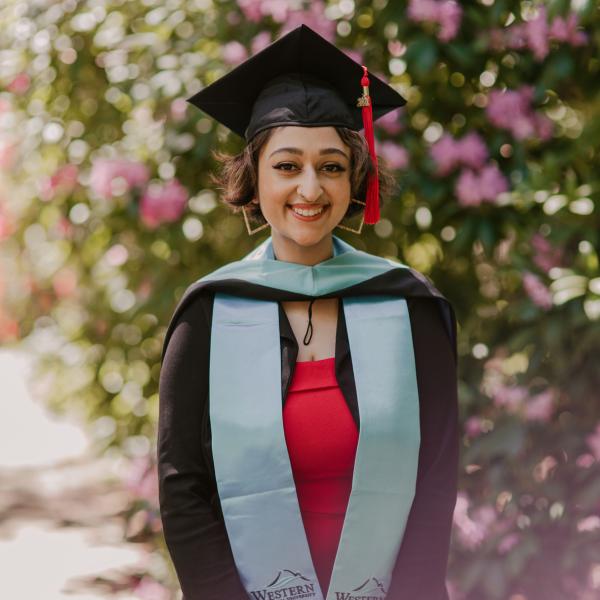Program Information
Our graduate program is fairly small, enrolling fifteen to twenty new students each year. We deliberately limit the size of our program so that we can offer close working relationships between faculty and graduate students. For this reason, our graduate seminars are limited to twelve students, and two graduate classes per quarter is the normal load. Graduate students work closely with faculty in graduate seminars, through internships, and on academic and literary journals published by the Department. We consider our intellectual environment to be an essential part of our graduate program.
We schedule an exciting and diverse range of graduate seminars each year, with topics in national and global literatures, creative writing, composition and rhetoric, cultural studies, film, linguistics, literary theory, and pedagogy. Additionally, for those interested in becoming college-level teachers, our program offers in-depth experience and training.
Our graduate students are also able to gain significant editing and publishing experience through work on the editorial staff of one or more of the journals supported by the English Department at Western. The Bellingham Review is a nationally recognized journal that has recently published creative writing by such authors as Charles Wright and Gary Soto, among others. One paid Managing Editor position is available for a second-year student, awarded on a competitive basis.
Goals
The MA program in English is designed for those who desire to prepare for:
- PhD and MFA programs, as well as other advanced degrees
- Teaching at two-year colleges
- Public or private teaching (elementary, middle, secondary)
- Careers in technical writing and communication
- Careers in editing and publishing
- Careers in nonprofit and other business organizations
Depending on the chosen area of concentration, students will attain the following skills:
- Preparation in national and global literatures and cultures, creative writing, critical and cultural theory, film and media, pedagogy, composition and rhetoric, technical writing, professional writing, editing and publishing, and linguistics
- Teaching experience (if awarded a teaching assistantship or internship)
- Professional editing with scholarly and creative writing journals, such as the Bellingham Review
- Professional communication, oral and written
- Competency in the use of classroom and communications technologies
- Awareness of diversity, educational equity, and social justice issues
- Awareness of ethical and reflective pedagogical practices
Application Requirements
- All applicants must complete the Graduate School's ApplyWeb application and pay the $100 application fee.
- Within the application you will be prompted to upload an unofficial transcript from each institution attended. If admitted, you will be asked to provide official transcripts.
- Additional application materials are specified below. Applications will not be forwarded to the department for review until all required materials have been received by the Graduate School.
- International Applicants: Please review the requirements for information regarding Degree Equivalency, English Language Proficiency and student VISA requirements.
Additional Application Requirements
- Three (3) Letters of Reference
- Writing sample: 7-12 pages of work in literary study
- Statement of Purpose: This 1‐2 page statement should explain your intellectual and/or creative interests, and your professional goals. Reviewers value statements that are intellectually mature, coherent, and well‐organized. If you are interested in being considered for a funded Teaching Assistantship, please include relevant experience and information that will aid us in making funding decisions.

The faculty and peers that I was surrounded by not only encouraged my work, but helped me to seek out connections and resources to enlighten me as an ever-growing scholar. As someone who studies within a unique field that was nonexistent in my department, I never felt that I couldn’t succeed—instead, spaces for my interests were created for me, and I was inspired to create my own spaces and spaces for others like myself.
Amrit AbbasiMS English, 2021
